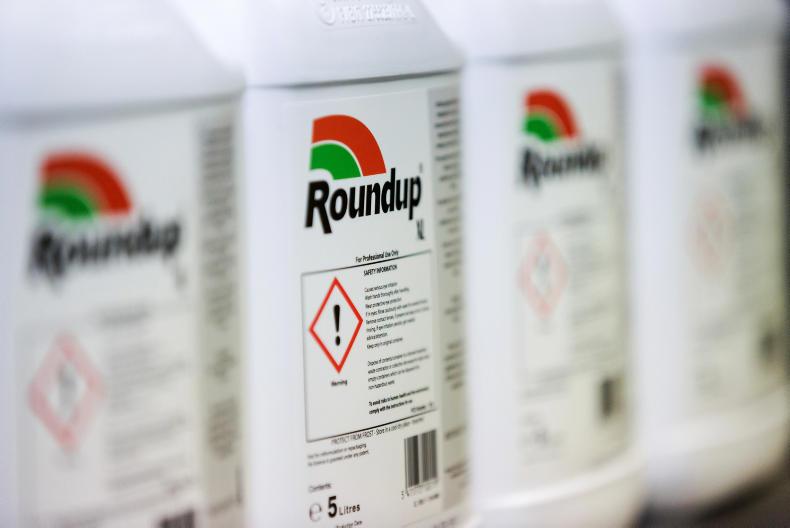The European Commission’s proposal for a five-year re-authorisation secured the required qualified majority at a meeting of the European Union’s appeal committee on phytopharmaceuticals in Brussels this Monday, a Commission source told the Irish Farmers Journal.
Countries representing 65% of the EU’s population had to agree for a decision to be made, and the final tally returned 65.71% in favour.
The Commission had referred its proposal to the appeal committee after representatives of EU member states failed to agree on successive proposals for a 10-year and a five-year license for the active ingredient in Monsanto’s Roundup and other leading weedkillers.
European Commissioner for Health and Food Safety Vytenis Andriukaitis welcomed the decision.
Today's vote shows that when we all want and put effort in it, we are able to accept and to share our collective responsibility in decision making.#glyphosate
— Vytenis Andriukaitis (@V_Andriukaitis) 27 novembre 2017
Germany, which had previously abstained, changed its position and supported the proposal. The collapse of coalition talks in Germany involving the Green party last week left the caretaker government led by Chancellor Angela Merkel free to cast a positive vote.
Ireland has voted consistently in favour of re-authorising glyphosate, including this Monday.
France and Italy were the most populous countries to vote against the proposal, bringing the result close to the failure mark.
Cancer controversy
Opponents to glyphosate argue that one scientific assessment, that of the International Agency of Research on Cancer of the World Health Organisation, classified the substance as “probably carginogenic”.
Luxembourg's environment minister Carole Dieschbourg, one of the most vocal opponents to glyphosate at EU level, vowed to keep fighting for a phase-out of the chemical.
#StopGlyphosate COM Proposal for 5 years extension adopted. LUX voted against. This is not a clear signal for a phase out of glyphosate. The fight needs to go on!
— Carole Dieschbourg (@DieschbourgC) 27 novembre 2017
Most farming organisations have pointed out that all food safety agencies in the EU, as well as the US and New Zealand, have concluded that glyphosate does not cancer. They estimate that banning glyphosate would significantly reduce crop production in Europe.
IFA president Joe Healy described Monday's vote as "an important outcome for farmers and for science" and said: “Glyphosate is an integral part of the modern farming practice in both tillage and grassland production. It is a key arable crop management tool that allows farmers to produce an abundance of safe, affordable, quality food. Its judicious use allows us to adopt minimum tillage practices, thus preventing soil erosion and reducing greenhouse gas emissions from the sector”.
US study clears glyphosate cancer link
Glyphosate: ‘must we shoot ourselves in the foot to prove the gun is loaded?’






 This is a subscriber-only article
This is a subscriber-only article









SHARING OPTIONS: